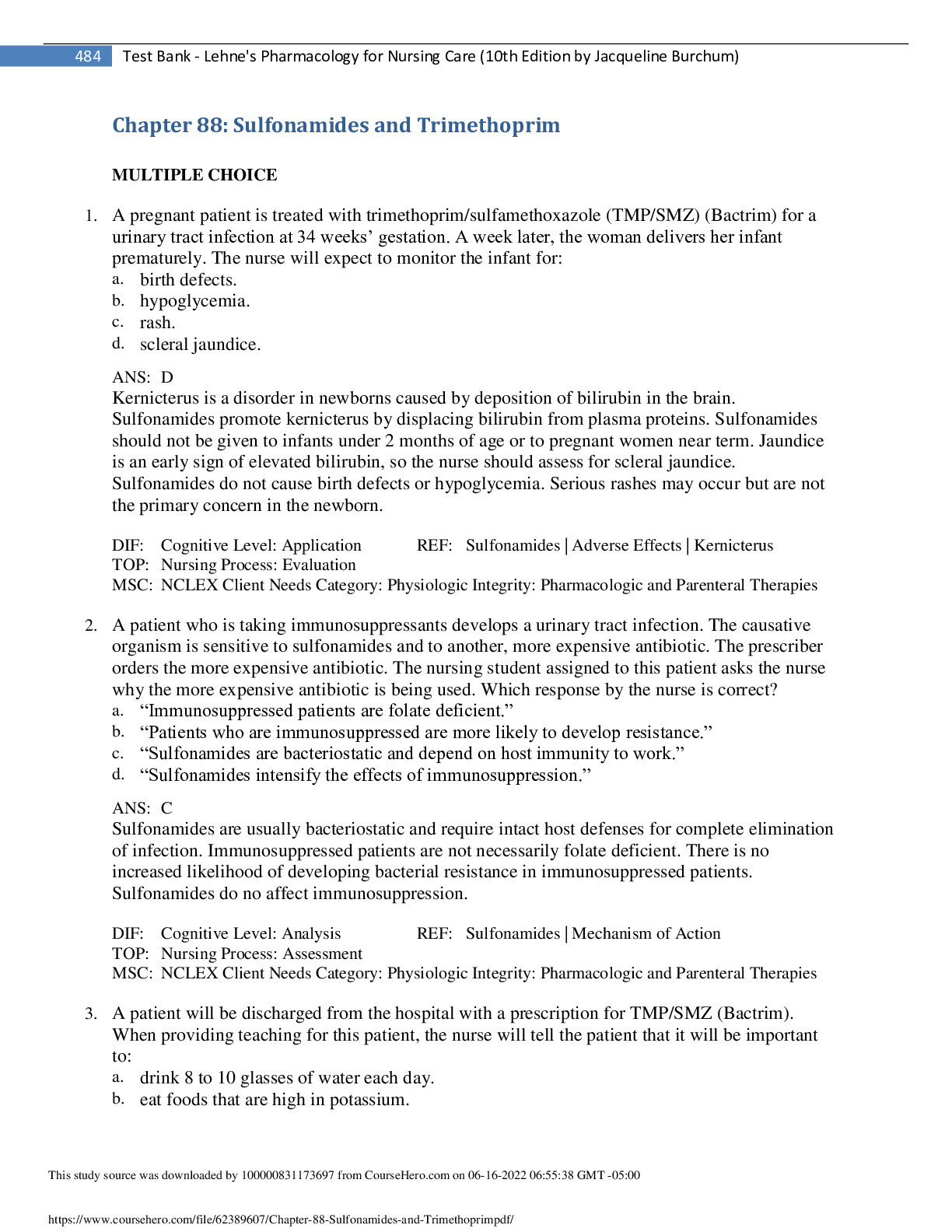1. A pregnant patient is treated with trimethoprim/sulfamethoxazole (TMP/SMZ) (Bactrim) for a
urinary tract infection at 34 weeks’ gestation. A week later, the woman delivers her infant
prematurely. The nurse will expect to monitor the infant for:
a. birth defects.
b. hypoglycemia.
c. rash.
d. scleral jaundice.
2. A patient who is taking immunosuppressants develops a urinary tract infec
...[Show More]
1. A pregnant patient is treated with trimethoprim/sulfamethoxazole (TMP/SMZ) (Bactrim) for a
urinary tract infection at 34 weeks’ gestation. A week later, the woman delivers her infant
prematurely. The nurse will expect to monitor the infant for:
a. birth defects.
b. hypoglycemia.
c. rash.
d. scleral jaundice.
2. A patient who is taking immunosuppressants develops a urinary tract infection. The causative
organism is sensitive to sulfonamides and to another, more expensive antibiotic. The prescriber
orders the more expensive antibiotic. The nursing student assigned to this patient asks the nurse
why the more expensive antibiotic is being used. Which response by the nurse is correct?
a. “Immunosuppressed patients are folate deficient.”
b. “Patients who are immunosuppressed are more likely to develop resistance.”
c. “Sulfonamides are bacteriostatic and depend on host immunity to work.”
d. “Sulfonamides intensify the effects of immunosuppression.”
3. A patient will be discharged from the hospital with a prescription for TMP/SMZ (Bactrim).
When providing teaching for this patient, the nurse will tell the patient that it will be important
to:
a. drink 8 to 10 glasses of water each day.
b. eat foods that are high in potassium.
4. A nurse teaches a patient about sulfonamides. Which statement by the patient indicates a need
for further teaching?
a. “I need to drink extra fluids while taking this medication.”
b. “I need to use sunscreen when taking this drug.”
c. “I should call my provider if I develop a rash while taking this drug.”
d. “I should stop taking this drug when my symptoms are gone.”
5. A patient with type 2 diabetes mellitus takes glipizide. The patient develops a urinary tract
infection, and the prescriber orders TMP/SMZ. What will the nurse tell the patient?
a. Patients with diabetes have an increased risk of an allergic reaction.
b. Patients taking TMP/SMZ may need increased doses of glipizide.
c. The patient should check the blood glucose level more often while taking
TMP/SMZ.
d. The patient should stop taking the glipizide while taking the TMP/SMZ.
[Show Less]
